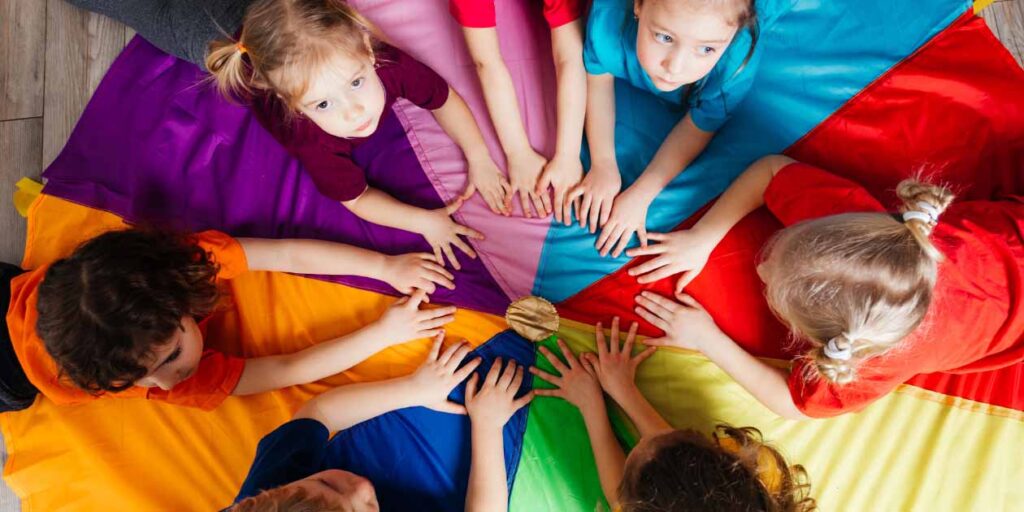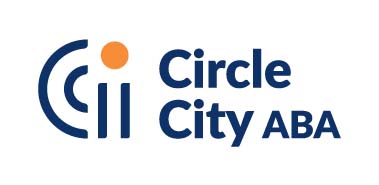
Circle City ABA develops programs and services specifically designed for each child in mind. Applied behavior analysis therapy (ABA therapy) is the most effective treatment for autism spectrum disorders. It aims to increase communication, self-help, and social skills while decreasing behaviors that interfere with developing these skills in children with Autism. Keep reading to learn more about our approach to teaching social skills in ABA therapy.
Teaching Social Skills in ABA Therapy
Social skills development is key to a child’s growth and development. However, for children with autism spectrum disorder (ASD), developing social skills can be particularly challenging. Social skills therapy is a specialized intervention that prioritizes interactions between groups of peers to help children with ASD develop the necessary social skills for successful interactions.
Autism is a neurodevelopmental disorder affecting a child’s ability to communicate, interact, and socialize. As a result, children with autism may struggle with social skills, leading to difficulties in forming and maintaining relationships with others. Circle City ABA uses ABA therapy to teach children with autism how to interact and communicate effectively with others.
Learn About Group Therapy at Circle City ABA
Our ABA therapy involves a range of techniques and strategies tailored to the child’s individual needs. One aspect of ABA therapy is prioritizing interactions between groups of peers to help develop social skills. This means that children with ASD can interact and socialize with their peers in a structured and supportive environment.
At Circle City ABA, we teach children with ASD various social skills, including communication skills, social cues, and appropriate behavior. For example, they learn how to initiate conversations, maintain eye contact, and read social cues, such as body language and tone of voice. They can also learn how to handle challenging social situations, such as conflicts or disagreements.
Group therapy sessions are particularly beneficial for children with ASD as they provide a supportive and structured environment for social interaction. A Board Certified Behavior Analyst (BCBA) typically leads group therapy sessions, using various techniques such as role-playing and modeling to help children learn and practice social skills. The BCBA may also use feedback and positive reinforcement to help children develop and reinforce their social skills.
Social Skills Therapy for Individuals
In addition to group therapy sessions, ABA therapy involves individual sessions with a BCBA or behavior technician. During these social skills therapy sessions, the therapist works with the child to identify specific social skills that need development and creates personalized strategies to improve those skills.
ABA therapy can be a highly effective intervention for children with autism to develop social skills. By prioritizing interactions between groups of peers, ABA therapy helps children with ASD develop the necessary social skills for successful interactions. With the help of a trained therapist, children with autism can learn how to communicate, interact, and socialize with others effectively, which can positively impact their overall well-being and quality of life.
At-Home Training Tips
If your child is taking part in social skills training and therapy, it is important to enforce the lessons learned outside of the classroom to continue improvement. Specific strategies for reinforcing these skills at home include:
- Being consistent – Teaching social skills in ABA therapy goes way beyond the classroom, which means that it is vital to remain consistent while at home. Therefore, it’s crucial to establish routines at home that promote social interaction to allow your child to keep practicing their social skills and help them develop good habits when doing so.
- Modeling proper behavior – At home, you are the role model for your child, so it’s key to demonstrate positive social behaviors for them to adopt. Behaviors that will enhance their ABA therapy and social skills training include active listening, empathy, and effective communication in interactions.
- Communicating openly – Keeping an open line of communication with your child’s therapist will help you and them stay informed on progress and any challenges. When you share insights about your child’s behavior at home, it’s possible to develop a plan that facilitates a personalized plan of improvement.
- Being supportive – The most important thing you can do for your child as they work on developing social skills is to be patient and supportive. Progress may take time, but providing a nurturing environment where they feel safe to practice and make mistakes only helps the learning process.
Last but not least, use positive reinforcement! Praise and encourage your child when they demonstrate good social skills to let them know that they’re on the right track. Be sure to acknowledge their efforts and progress throughout the social skills training process as well.
Activities to Enhance Social Skills Therapy at Home
Consistency while teaching social skills in ABA therapy is a great way to enhance learning and promote better understanding. This will help your child practice good habits outside of school, which should yield better results. Below are some approaches that can be beneficial for social skills training at home that are easy to practice with your child:
- Social stories – Create social stories that teach social skills clearly and visually. Share them with your child regularly, and allow them to ask any questions that come up.
- Structured playdates – Structured playdates let your child have social interactions in a controlled setting. They are a great way to encourage cooperative play, teach turn-taking skills, and give your child the opportunity to spend time with their peers.
- Emotional regulation – Practicing emotional regulation techniques like deep breathing, mindfulness, and positive self-talk can help your child better handle their emotions in social settings.
Combining Social Skills Therapy with Other Therapies
ABA therapy can also be combined with occupational therapy (OT) and speech therapy (ST), depending on an individual and their needs. Combining the therapies means that the child will have a comprehensive approach to treatment that addresses a wide range of skills. OT and ST will tackle the specific areas of sensory processing, like fine motor skills or speech and language development. Circle City ABA only offers ABA therapy, but we are happy to adjust schedules to allow for other providers to provide OT and ST.
About Circle City ABA
We understand that caring for children with autism also means caring about their families, so we provide full-family education and support from day one. You’re an active and involved part of the process. To us, that means we’re here to walk you through what we’re doing and why. We share in your child’s wins together, and we’re always available to answer questions, discuss concerns, or workshop solutions to problems together.
Contact us for more information on ABA therapy services at Circle City ABA and teaching Autism social skills.


